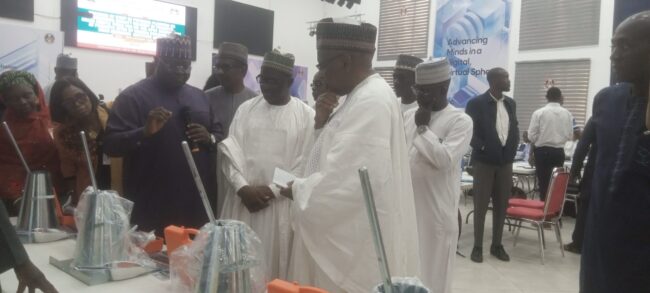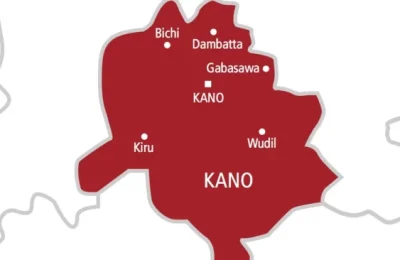
The Federal Government has vowed to crack down on substandard school building construction across the country, urging stakeholders, including the State Universal Basic Education Boards (SUBEB), to ensure quality in the delivery of school building projects.
The Executive Secretary of UBEC, Dr Hamid Bobboyi, spoke on Monday, during the training of staff of the Commission’s Department of Physical Planning, on enhancing the quality delivery of projects using simple tools for on-the-spot assessment at project sites.

The training was organised in collaboration with the Nigeria Building and Road Research Institute (NBRRI) and a private firm, Tectonics Engineering Group, and held at the UBEC Digital Resource Centre, Abuja.
Bobboyi, who noted that the Commission would no longer condone the shoddy execution of projects, warned contractors about the risks of delivering substandard school infrastructure in the country.
He restated the commitment of the Commission to working with SUBEBs to improve the quality of educational structures in order to ensure a safe and conducive learning environment for Nigerian children.
He also disclosed that the Commission would deploy monitors who would frequently go to find out what was going on across the construction sites.
He maintained that educational infrastructures are sensitive projects that must be handled with an ultimate sense of responsibility so as not to risk the lives of children and staff of the institutions.
He insisted that funds could not be enough, but the little that is available must be used judiciously to ensure the delivery of solid projects all over the country.
He regretted the recent incident of school building collapse in Jos, even though it was not a building sponsored by UBEC, urging state governments to take proactive steps to ensure that contractors handling school building projects adhere strictly to specifications.
“We are dealing with a very strategic sector: children who are between the ages of 5 and 6 up to about 12 and are very vulnerable in any building collapse. We saw that when it happened in Jos.
“It is our responsibility to ensure that we take all necessary steps to build school infrastructures that are solid and can stand the test of time,” he stated.
According to him, for quite some time, the Commission has had an elaborate monitoring system as far as the construction of educational infrastructure or school infrastructure is concerned.
He also said the Commission is working with NBRRI through its Chief Executive, Prof. Samson Duna and has also been working with the Council for Registration of Engineers in Nigeria (COREN) for a few years to make sure that they are part of the monitoring teams at the state level.
“Instead of just looking at what is there and so on and so forth, it’s to go with the kind of gadgetry that can also help us to test the strength of the materials that are being used.
“And it’s our hope that with our partners, NBRRI and other stakeholders, as well as the State Universal Basic Education Boards (SUBEBs) because the primary responsibility lies with them in our effort to achieve good outcomes as far as these projects are concerned,”
he said.
Also speaking, the Director-General/CEO of NBRRI, Professor Samson Duna, said the training programme was a proactive step by UBEC to forestall the incidence of rampant building collapses in Nigeria, especially school buildings.
He explained that the participants, who are UBEC technical staff, would be visiting the sites with tools to ascertain if the contractor is using the right steel and concrete for building construction.
“So I’m now throwing a warning to contractors involved in taking contracts for constructing schools without following the required specification. They should sit up.
“UBEC has come up with the idea of ascertaining the quality of construction material used on site. The quality of concrete needs to be specified, and the contractor must adhere to it. If he didn’t use it, the UBEC staff visiting the site are expected to travel or come with tools.
“And those tools will enable them to know if the contractor is using the right material. Both steels, which are factory products, also confirm if the concrete used is in conformity with the design.”
He reiterated his commitment to ensuring that the quality of concrete meets the specification, saying that it has established tools that measure the concrete in its wet state and measure it when it has hardened.
ALSO READ THESE TOP STORIES FROM NIGERIAN TRIBUNE








